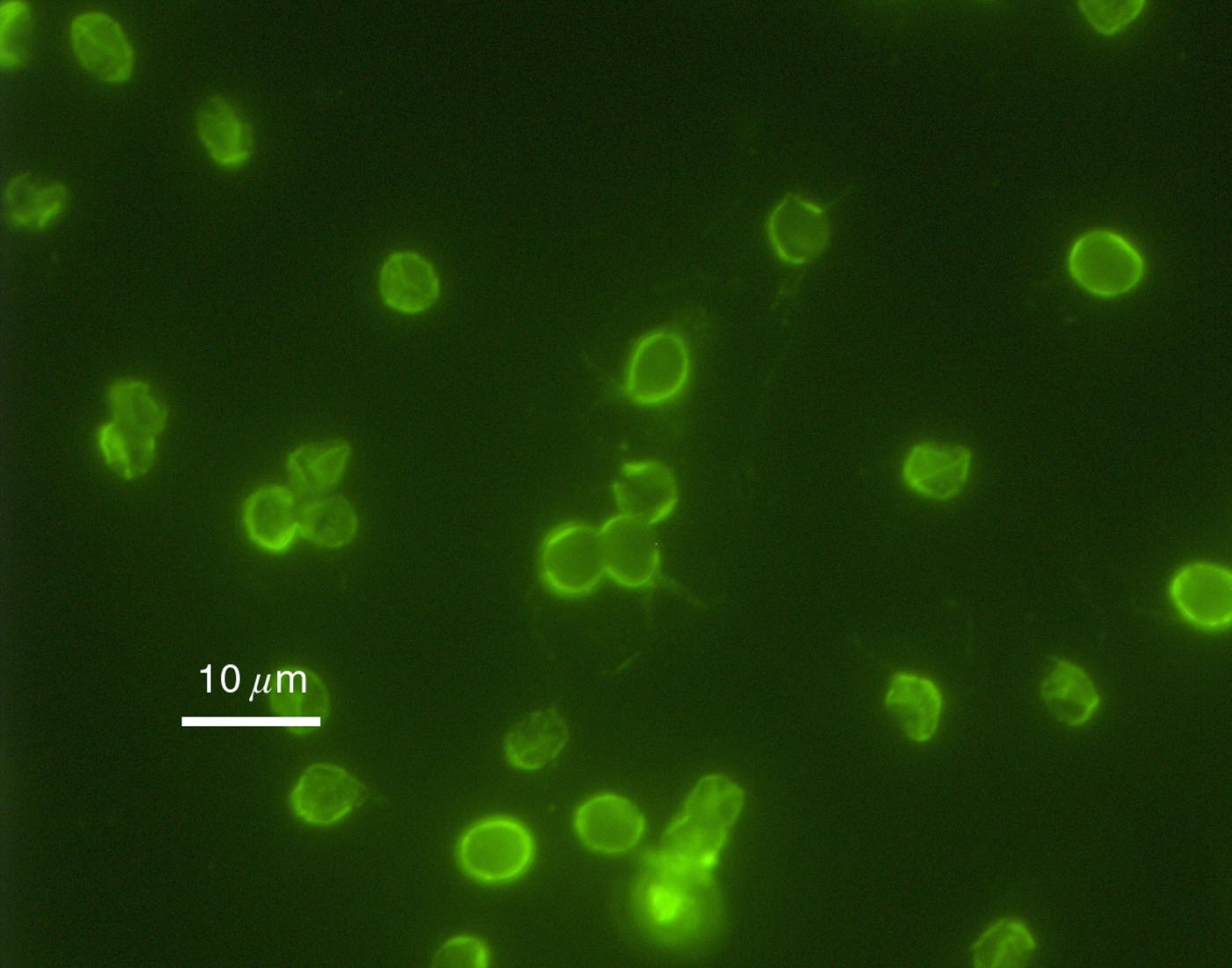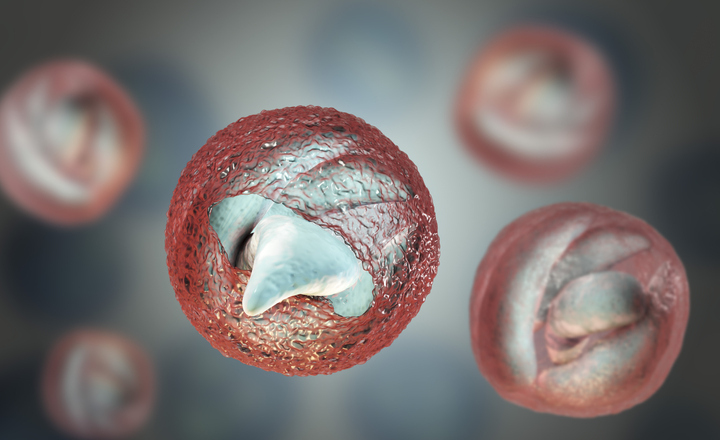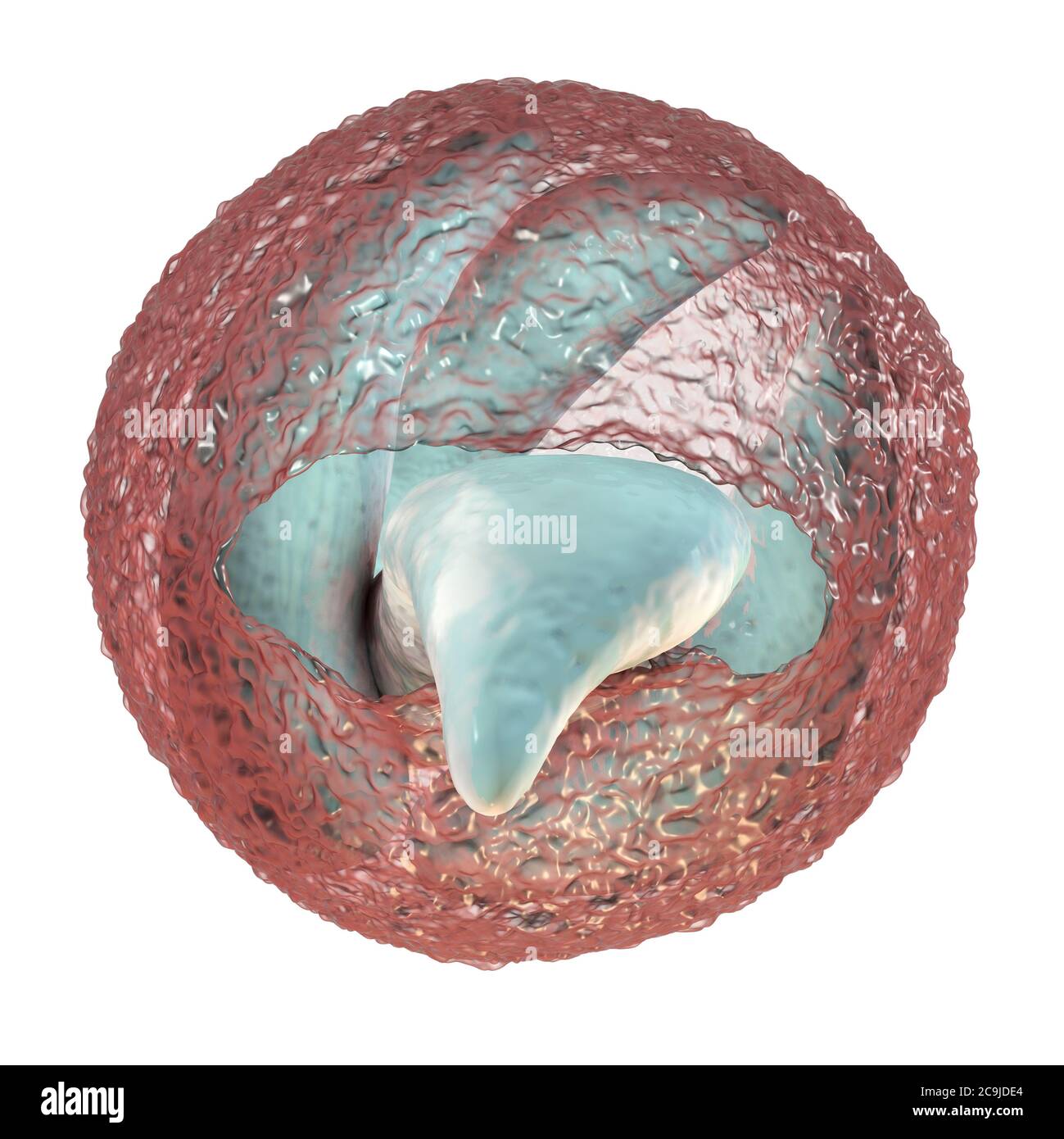Cryptosporidium Parvum | Cryptosporidium parvum is one of several species that cause cryptosporidiosis, a parasitic disease of the mammalian intestinal tract. Cryptosporidium parvum is the specific infective agent in human. Cryptosporidium parvum is a protozoan and an obligate intracellular parasite (a parasite that cannot survive without a host) that commonly causes an opportunistic infection in immunocompromised hosts. Cryptosporidium parvum'un yol açtığı enfeksiyonlarda genellikle sulu ishal görülürken diğer 3 türde 1.1.1.1. Parvum genotype i) are the leading causes of human cryptosporidiosis. Intestinal sporozoa (cryptosporidium parvum, cyclospora cayetanensis, isospora belli). Nitazoxanide inhibits the growth of cryptosporidium parvum and giardia lamblia trophozoites. Cryptosporidium parvum is a coccidian protozoan that causes diarrhea in immunocompromised humans and newborn animals. Cryptosporidium parvum is a protozoan and an obligate intracellular parasite (a parasite that cannot survive without a host) that commonly causes an opportunistic infection in immunocompromised hosts. Cryptosporidium parvum is a coccidian parasite that affects the intestinal and respiratory epithelium of vertebrates. Cryptosporidium parvum is a coccidian protozoan that causes diarrhea in immunocompromised humans and newborn animals. Parvum infection are acute, watery. Hominis (formerly known as c. 50 it significantly shortens the duration of diarrhea and can decrease the mortality risk in malnourished. Cryptosporidium parvum (formerly known as c. Cryptosporidium parvums, parvum cryptosporidium, parvum, cryptosporidium. Cryptosporidium parvum is a coccidian parasite that affects the intestinal and respiratory epithelium of vertebrates. For the immunocompromised, these infections cas actual | microbiology. Morfoloji ve yaşam siklusu cryptosporidium parvum ookistleri yaklaşık 5.0 x 4.5 μm. Cryptosporidium parvum is a protozoan and an obligate intracellular parasite (a parasite that cannot survive without a host) that commonly causes an opportunistic infection in immunocompromised hosts. Cryptosporidium parvum'un yol açtığı enfeksiyonlarda genellikle sulu ishal görülürken diğer 3 türde 1.1.1.1. Cryptosporidium parvum was likely to be most responsible for diarrhoea and death. Nitazoxanide inhibits the growth of cryptosporidium parvum and giardia lamblia trophozoites. Cryptosporidium parvum is a protozoan and an obligate intracellular parasite (a parasite that cannot survive without a host) that commonly causes an opportunistic infection in immunocompromised hosts. Cryptosporidium parvum is the specific infective agent in human. Cryptosporidium parvum'un yol açtığı enfeksiyonlarda genellikle sulu ishal görülürken diğer 3 türde 1.1.1.1. Cryptosporidium parvum is a coccidian protozoan that causes diarrhea in immunocompromised humans and newborn animals. Cryptosporidium parvum is a protozoan parasite that causes intestinal illness in people and animals. Cryptosporidium parvum is one of several species that cause cryptosporidiosis, a parasitic disease of the mammalian intestinal tract. Cryptosporidium parvum'un yol açtığı enfeksiyonlarda genellikle sulu ishal görülürken diğer 3 türde 1.1.1.1. Parvum infection are acute, watery. Hominis (formerly known as c. A microbial biorealm page on the genus cryptosporidium parvum. Cryptosporidium parvum is a protozoan and an obligate intracellular parasite (a parasite that cannot survive without a host) that commonly causes an opportunistic infection in immunocompromised hosts. Cryptosporidium parvum is a coccidian parasite that affects the intestinal and respiratory epithelium of vertebrates. Cryptosporidium parvum is a zoonotic protozoan parasite that mainly affects the ileum of humans and livestock, with the potential to cause severe enteric disease. A species of parasitic protozoa in the family cryptosporidiidae. 50 it significantly shortens the duration of diarrhea and can decrease the mortality risk in malnourished. For the immunocompromised, these infections cas actual | microbiology. Cryptosporidium parvum was likely to be most responsible for diarrhoea and death. Parvum iida15g1 in chinese dairy cattle. Cryptosporidium parvums, parvum cryptosporidium, parvum, cryptosporidium. Intestinal sporozoa (cryptosporidium parvum, cyclospora cayetanensis, isospora belli). A microbial biorealm page on the genus cryptosporidium parvum. Parvum genotype ii) and c. Parvum genotype i) are the leading causes of human cryptosporidiosis. Morfoloji ve yaşam siklusu cryptosporidium parvum ookistleri yaklaşık 5.0 x 4.5 μm. Cryptosporidium parvum is a coccidian parasite that affects the intestinal and respiratory epithelium of vertebrates. Parvum is one of the main agents of. Nitazoxanide inhibits the growth of cryptosporidium parvum and giardia lamblia trophozoites. Cryptosporidium parvum (formerly known as c. Parvum infection are acute, watery. Cryptosporidiosis is caused by members of the genus cryptosporidium, a coccidian parasite in the family cryptosporidiidae, subclass cryptogregaria and phylum apicomplexa. Cryptosporidium parvum is a zoonotic protozoan parasite that mainly affects the ileum of humans and livestock, with the potential to cause severe enteric disease. Hominis (formerly known as c. Cryptosporidium parvum is a protozoan and an obligate intracellular parasite (a parasite that cannot survive without a host) that commonly causes an opportunistic infection in immunocompromised hosts. Cryptosporidium parvum is one of several species that cause cryptosporidiosis, a parasitic disease of the mammalian intestinal tract. Cryptosporidium parvum'un yol açtığı enfeksiyonlarda genellikle sulu ishal görülürken diğer 3 türde 1.1.1.1. Parvum genotype ii) and c.


This is the first report of a cryptosporidiosis outbreak caused by c cryptosporidium. Cryptosporidium parvum'un yol açtığı enfeksiyonlarda genellikle sulu ishal görülürken diğer 3 türde 1.1.1.1.
Cryptosporidium Parvum: Cryptosporidium parvum is a coccidian parasite that affects the intestinal and respiratory epithelium of vertebrates.
Source: Cryptosporidium Parvum

EmoticonEmoticon